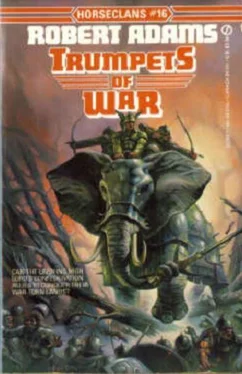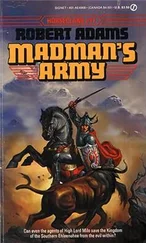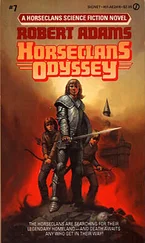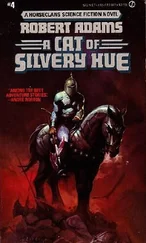He stood up, holding the red leather tube prominently in his hand. “My lords, some years after we had moved the capital from its old location to Mehseepolis, I was recipient of certain dispatches from High Lord Milos. If those who were then members of Council will recall, we then were not at all certain sure that we would be able to rebind the lands together under us and ever take our place in the Confederation ruled over by the High Lord, and I had communicated this to him in a letter.
“His replies were several, but one of them was a letter in a tube that also contained this tube—then firmly sealed. The letter that was within the outer tube recognized the enormity of the task we few then were undertaking and praised our bravery for trying to do it at all in the face of seemingly overwhelming odds, so much opposition from so many quarters. The High Lord went on to say that I should keep this tube sealed and keep it always near to hand, and should all appear lost, the situation either hopeless or completely out of hand for whatever reasons, I was to break the seals and open this red tube, seek out the man who had the other half of the coin therein contained, and follow his instructions to the letter, recognizing him to be the full surrogate of the High Lord.
“It did not work out quite that way, of course, my lords. We have succeeded . . . after a fashion. But now crass politics and a controversy centering around a stubborn, petulant old man in his second childhood through senility is threatening the stability that we have but recently achieved at great cost of effort and time, sweat and gold, blood and worry.
“Although we each of us swore and attested powerful oaths to ever lend our full and unqualified support to the aims and aspirations of our Confederation of Consolidated Thoheekseeahnee, its governing body—the Council of Thoheeksee—and the larger entity which it serves and to which it owes pledged fealty—the Confederation of Eastern Peoples—many a one of this present council has proved himself to be completely unwilling to sacrifice even a single one of his purely personal interests to the common weal; indeed, members of Council have time and again fought like cur-dogs over a rotting bone within the precincts of this very room, have later drawn each other’s blood in senseless duels and have, I am dead certain, hired common assassins to dispose of peers and brothers of Council.
“This can in no way be construed or considered an orderly government, for all that the strenuous efforts of a very few of us have kept most of the outward appearances of one with little help, no help at all or outright and childish opposition from the remainder of Council. I have right often of recent months thought me of that red letter tube tucked away in my files and wondered and pondered.
“All of you know Sub-strahteegos Thoheeks Tomos Gonsalos, here. He is Karaleen-born and truly owes us nothing, yet he accepted the High Lord’s commission to march down here following the Zastros disaster and, with a small nucleus of troops loaned by the High Lord for a core, rebuild from the broken, scattered elements of warbands and survivors of the royal armies of the various kings a fine, strong, well-balanced and proven-effective army, so that when the present Grand Strahteegos took command, years back, he had only to shape and mold a preexisting army to his personal taste, not organize one from scratch, as might otherwise have been the case.
“After the Grand Strahteegos took command of the field army, no one would have thought it at all out of place had this selfless nobleman, his job well done, left and returned back north to his own lands and kin. But he did not, rather he stayed on here, and has since then done the hard, detailed and exacting duties of managing the many-faceted support system without which the field army could not exist and keep functioning.
“The army taken over by the Grand Strahteegos was strong, disciplined and well organized, owning many fine units raised and commanded by effective and sometimes brilliant noble officers. The skill and valor and blood of that army won victory atop victory for Council and was of significant help in finally reuniting these lands, clearing them of the scum that had accumulated here and there in the bad old days and seating us and our noble vassals all securely in our places. This army of ours remained that way for a while . . . but no more, my lords, no more.”
“Now, dammit, Grahvos,” snapped Pahvlos, looking and sounding thoroughly exasperated, “do you intend to get to a point or not? I am a very busyman, I have many important matters awaiting me back at the headquarters of my army. I think that this session can get along just as well rehashing recent history without me.” He shoved back his chair and looked to be in the act of arising.
“I would strongly advise that you stay, my lord Grand Strahteegos,” said Mahvros quietly and coolly, but with force. “I say this both as chairman and as one privy to knowledge not yet generally shared by the other members of Council.”
The spare, white-haired officer sank back into his chair, saying, “Oh, very well. But please, please, get to a point, Grahvos. I left it that the punishment and executions of certain military miscreants on tap for today not commence without me there to witness them, and the troops all are drawn up in formations by now, that they may be warned by those examples how I maintain discipline and loyalty in my army.”
“As I was saying, my lords,” Thoheeks Grahvos went on, “our army, Council’s army, was still a strong, a terribly effective, a high-spirited force as lately as two years ago, but no more. Many of the best noble officers have taken their units and left the camp; many noble officers who yet remain are much disaffected and have made that disaffection known to certain of us.”
“Really?” said Pahvlos, raising his eyebrows. “They haven’t said as much to me, their commander, their Grand Strahteegos, the man to whom they would logically speak. A wise man would’ve put no trust in the babblings of a few troublemakers. But are you wise, Grahvos?”
“Wiser than you think!” snapped Grahvos. “Wise enough to know that you don’t hold command of a good army by the harsh, brutal, savage and barbaric ways you have taken to using within the last two years, old man.
“Wise enough am I to realize that you cannot keep an army almost constantly on campaign, year-round, and then not allow them to unwind with wine and brandy and carousing in garrison. You don’t have men lashed to death or cripplement for being found drunk in their barracks after a three-month campaign in the mountains, yet you did just that. You don’t have a good sergeant’s ears cropped and burn his scalp bone-deep with boiling pitch simply because he was a day late in returning to camp from a carouse, either, yet you did, my lord. You don’t have the hands of an artificer mangled simply because he somehow smuggled a town strumpet into his barracks, but that is just what you did, Thoheeks Pahvlos, whereupon the entire unit of artificiers—officers and men alike—deserted the army, and now Tomos Gonsalos is scratching about trying to organize another artificer corps for the field army.”
“The only thing that settles the insubordination of malcontents is the force of example,” said Pahvlos coldly.
“Is that so?” Grahvos said. “So what happened when you sent a full battalion of pikemen out to chase down the artificiers and bring them back to star in another of your gory spectacles? They didn’t come back either, only a few of their officers, whom you promptly had hung for malfeasance. Man, one would think that you are deliberately set to utterly destroy our army.”
“I’ve heard enough and more than enough!” Pahvlos snarled and came to his feet.
Читать дальше












